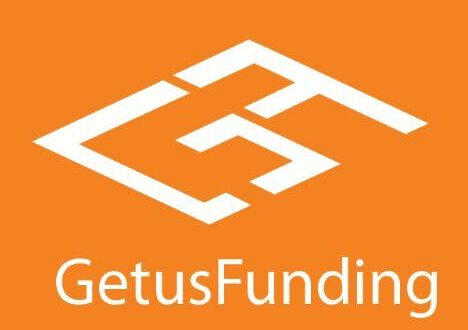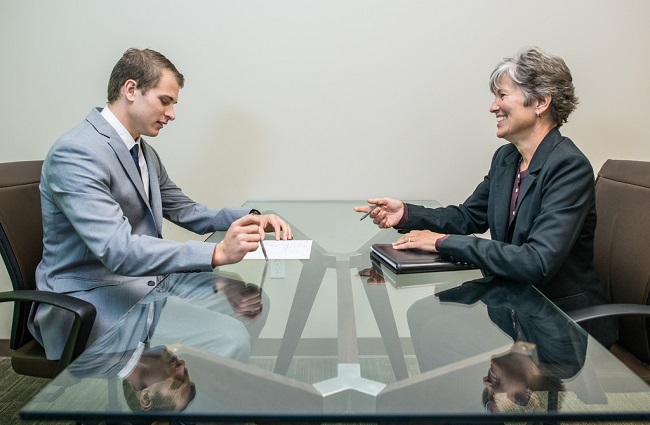Preparing for a job interview in Canada can be a daunting task, but success lies in mastering the right Canada interview questions. In this comprehensive guide, we go into the most commonly asked interview questions in the Canadian job market.

10 Canada Interview Questions
1. Tell me about yourself
How to answer:
- Keep it professional and concise.
- Highlight relevant work experience and skills.
- Mention your career goals and why you’re interested in the role.
Example Answer: “I’m a seasoned marketing professional with over five years of experience in digital marketing and campaign management. I’ve consistently delivered results for my previous employers by increasing online engagement and revenue. I’m excited about the opportunity to apply my expertise to your company’s dynamic marketing team, where I can contribute to driving growth and expanding brand reach.”
2. Describe a time when you faced a challenging situation at work and how you resolved it.
How to answer:
- Use the STAR (Situation, Task, Action, Result) method.
- Explain the specific situation, the actions you took, and the positive outcome.
Example Answer: “In my previous role as a project manager, we faced a sudden change in project scope and a tight deadline. I organized an emergency meeting to reassess priorities, distributed tasks effectively, and communicated with the client about the changes. Thanks to our team’s dedication and my proactive management, we not only met the deadline but also received positive feedback from the client for our adaptability and delivery.”
3. What interests you about this role and our company?
How to answer:
- Research the company thoroughly.
- Show how your skills and values align with the company’s mission and goals.
Example Answer: “I’m passionate about this role because it combines my love for data analysis with my interest in helping a company grow. Your company’s commitment to innovation and sustainability, as evident in your recent projects, aligns perfectly with my values. I’m excited about the opportunity to contribute to your data analytics team and be part of the positive changes you’re making in the industry.”
4. What are your strengths and weaknesses?
How to answer:
- Focus on strengths that are relevant to the job.
- For weaknesses, discuss how you’re actively working to improve them.
Example Answer: “My strengths include strong problem-solving abilities, attention to detail, and effective teamwork. However, I’ve identified that I can be overly critical of my own work at times, which can slow me down. To address this, I’ve been practicing setting realistic expectations for myself and seeking feedback from colleagues to maintain a healthy balance between quality and efficiency.”
5. Do you have any questions for us?
How to answer:
- Prepare thoughtful questions that show your interest in the company and role.
- Avoid asking questions that can be easily answered through research.
Example Answer: “Yes, I’m curious about the company’s plans for future expansion and how this role might contribute to those goals. Additionally, could you tell me more about the team dynamics and the most significant challenges the team has faced in the past year? I believe understanding these aspects will help me assess how I can make a valuable contribution.”
6. Describe a situation where you had to work as part of a team to achieve a common goal.
How to answer:
- Emphasize your collaboration and teamwork skills.
- Discuss how you contributed to the team’s success.
Example Answer: “In my previous role as a software developer, I was part of a cross-functional team responsible for launching a critical project. We faced technical challenges that required close cooperation among team members. I took the lead in facilitating regular team meetings, ensuring that everyone’s ideas were considered, and we successfully launched the project ahead of schedule.”
7. Where do you see yourself in five years?
How to answer:
- Discuss your career aspirations and how they align with the company’s growth.
- Show a commitment to professional development.
Example Answer: “In five years, I see myself in a leadership role within the company, contributing to strategic decision-making and guiding the team toward achieving our long-term goals. I’m committed to continuous learning and development to support my growth within the organization and help the company reach new heights.”
8. What motivated you to apply for this position?
How to answer:
- Highlight your genuine interest in the role and the company.
- Connect the role’s responsibilities with your skills and career goals.
Example Answer: “I was motivated to apply for this position because it perfectly aligns with my background and passion for [specific industry or field]. Your company’s reputation for innovation and commitment to making a positive impact in the industry greatly inspired me. I believe that by joining your team, I can contribute to your ongoing success while furthering my own professional growth.”
9. How do you handle tight deadlines and high-pressure situations?
How to answer:
- Discuss your time management, stress management, and problem-solving skills.
- Provide an example that demonstrates your ability to thrive under pressure.
Example Answer: “I thrive in high-pressure situations by staying organized and keeping a clear focus on priorities. In my previous role as a sales manager, I encountered tight deadlines during product launches. I divided tasks efficiently, delegated where necessary, and ensured open communication among the team, leading to successful product launches and exceeding sales targets.”
10. Can you provide an example of a time when you went above and beyond to meet a customer’s or client’s needs?
How to answer:
- Highlight your commitment to customer satisfaction.
- Showcase an instance where you exceeded expectations.
Example Answer: “During my time as a customer service representative, I received a call from a frustrated customer who had a technical issue that needed immediate resolution. Despite it being outside of regular business hours, I remained on the line, researched the problem, and guided the customer through the solution. This extra effort not only resolved the issue but also turned the customer into a loyal advocate for our company.”
Advice For Acing Canada Interview Questions
Review the job description carefully to identify key skills, qualifications, and responsibilities required for the role. Use this information to align your relevant experience and skills with the job’s demands. Practice your answers to common questions, such as “Tell me about yourself,” and “What are your strengths and weaknesses?” Practicing these responses with a friend or in front of a mirror can significantly boost your confidence.
For behavioral questions, utilize the STAR method (Situation, Task, Action, Result) to structure your responses, providing specific examples to showcase your abilities. Remember to customize your answers for each interview, highlighting experiences and skills that are most relevant to the company’s culture and job requirements.
Always have a set of thoughtful questions to ask the interviewer; it not only demonstrates your interest but also helps you gather crucial information about the company and the role. Your choice of attire should be based on the company culture and industry norms; it’s better to be slightly overdressed than underdressed when in doubt.
Punctuality is key; plan to arrive at the interview location with ample time to spare. Positive body language, such as maintaining eye contact and offering a firm handshake, communicates professionalism. Throughout the interview, keep a positive attitude. Even when discussing challenges or weaknesses, focus on personal growth and learning.
When discussing weaknesses, emphasize how you are actively working to improve them, which demonstrates self-awareness and a commitment to self-improvement. Be authentic, as authenticity is highly valued in interviews. Nervousness is normal, and interviewers understand this, so just be yourself.
Manage interview anxiety with relaxation techniques like deep breathing. Remember that interviews are a two-way process, offering you the opportunity to evaluate the company as well. Follow up with a thank-you email or letter within 24 hours of the interview to express gratitude and reiterate your interest in the position. Lastly, regardless of the outcome, take time to reflect on each interview, identifying areas for improvement and ensuring continuous learning for your career growth. To learn about PTE score in Canada click this link.

